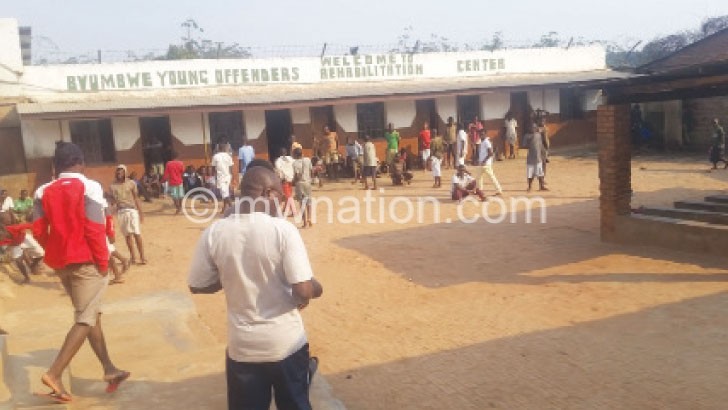No more child prisoners
Meet James Faison (not real name), a 45-year-old ex-convict who confesses that he almost committed suicide while serving five years for burglary.
He narrates how he gave up on life following the trauma, anxiety and fear he experienced while at Chichiri Prison.
“It’s hell out there. Surviving in jail is by grace of God,” says Faison.

He recalls the rampant infectious diseases, drug use, sexual assaults and starvation which he says can make even the toughest criminal to break.
“When you are in there, it’s a whole new world which you have to adapt or die. You have to survive at all cost. I only thank God that I am still alive,” says Faison.
Now consider a child offender incarcerated in such conditions.
The juvenile justice system in the country is designed to rehabilitate young offenders so that they are given a second chance in life.
But instead, some 270 minors were thrown into jails alongside adults at Bvumbwe and Kachere prisons.
The condition of Malawi prisons is well documented.
The Inspectorate of Prisons in its 2016 report to Parliament noted that Kachere Prison “is a health disaster in waiting”.
The report noted several concerns including a severe shortage of food.
On some days inmates receive no food.
The risk of disease outbreak is also high.
The inmates also face an acute shortage of blankets.
Even the prison structure itself is also a cause for concern—the building risks collapsing.
It is the same story at Bvumbwe Prison where the Inspectorate of Prisons’ report noted that cells are poorly ventilated and toilets have no running water.
This is why Centre for Human Rights, Education, Advice And Assistance (Chreaa), Youth Watch Society (YSW) and the Southern Africa Litigation Centre (Salc) feel they have won a great victory after Bvumbwe and Kachere prisons responded to the order to release about 270 minors following Malawi High Court order in June 2018.
According to Malawi Child Care, Protection and Justice Act, a child is not supposed to be sent to prison.
Section 134 of the Act provides that all children matters shall be heard in a child magistrate and Section 140 of the same Act prohibits sending a child to prison.
Children who find themselves in conflict with the law are supposed to be sent to reformatory centres such as Chilwa Approved School and Mpemba Reformatory Centre.
However, some courts were breaking the law and sending young offenders to jail where they were subjected to dehumanising experience.
While prisons are supposed to reform inmates, children are a different case.
Sending children to jail means the young offender has been deprived of his right to education.
The abusive environment in prison cause untold physical as well as psychological trauma which may never heal.
In February 2018, civil society organisations brought a case challenging the incarceration of children in Malawi prisons.
The application was argued by Fostino Maele and supported by Chreaa, YWS and the Salc.
The court ordered that all children detained at Kachere and Bvumbwe prisons pending trial should be transferred to safety homes.
Those that were found liable by a competent court were to be transferred to a reformatory home within 30 days.
Though it has taken eight months, young offenders who had their rights violated have been freed, a development Chreaa director Victor Mhango says marks a new chapter in juvenile justice.
“The welfare of children in prison has always been a serious matter of concern. The conditions in our prisons are appalling, including food shortages, diseases and serious overcrowding.
“Our laws have recognised that prisons are not suitable for children and we are encouraged that the prisons have responded positively to remove children from prisons,” he said.
The court ordered that in the absence of designated safety homes such as Chilwa Approved School and Mpemba Reformatory Centre which are often crowded, the minors should be released into the custody of their parents or guardians.
“We are glad that after winning the case, government has finally complied with the judgement. As of now there are no minors in Malawi prisons,” said Mhango.
Southern Africa rates high in imprisonment of children compared to the rest of the continent, according to World Prison Population Brief.
Malawi had 7.7 percent of persons under-18 in prison while Mozambique is at 8,6 percent and Botswana 10,4 percent.
Anneke Meerkotter, from Litigation Director at the Southern Africa Litigation Centre, noted that the region also rates high in children being incarcerated with adults..
“Incarceration of children is a serious indictment on our society and the child justice system in our region.
“It violates the requirement that children’s best interests are at the core of all decisions relating to children,” she said.n





